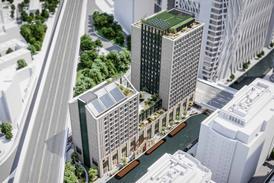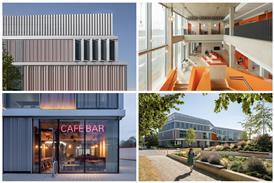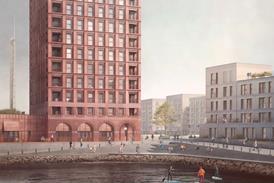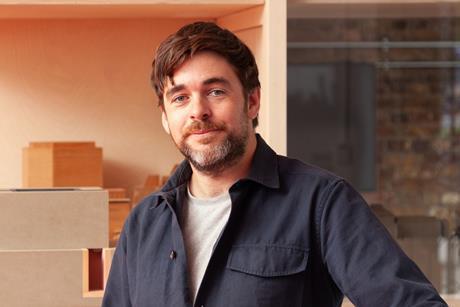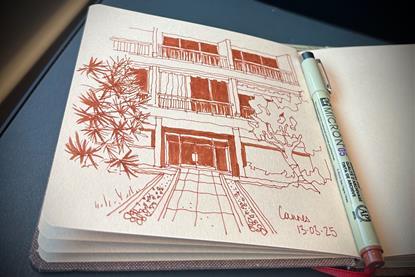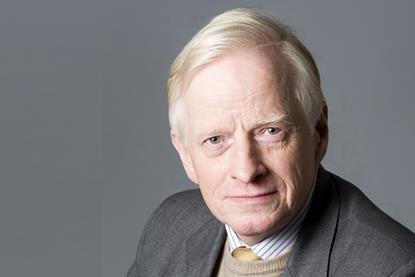- Home
- Intelligence for Architects
- Subscribe
- Jobs
- Events

2025 events calendar Explore now 
Keep up to date
Find out more
- Programmes
- CPD
- More from navigation items
Opinion
Latest Opinion
Architecture needs hope and innovation – not nostalgia and retreat from social responsibility
David Storring calls for a bold, future-facing architectural agenda – one grounded in resilience, collaboration, and the material realities of the 21st century
Advertisement
Advertisement
More Opinion
Beyond sustainability: what we need now is regenerative design
The industry’s focus has to move from just trying to conserve natural resources to building in a way that actually repairs the planet, Philip Watson at HLM Architects says
The land banking myth housebuilders can’t shake
Despite numerous reviews finding no evidence of housebuilders deliberately withholding land from the market, we are again having to talk about ‘unbuilt’ homes, writes Paul Smith
The Coach: Why age isn’t the issue – it’s the life stage that counts
Louise Rodgers challenges the idea that age defines us at work – pointing instead to the impact of what’s happening in our wider lives
Retrofitting social housing is the real challenge we can’t ignore
Britain’s retrofit push needs strategic vision – Chloe Phelps calls for co-produced mini-masterplans over ad-hoc upgrades
Why architects must confront the changing political landscape
Austin Williams argues that architecture has embraced an ideological rigidity that limits open debate and inhibits engagement with large sections of the public
2,000 young people, one mission: Rethinking access to architecture at the Festival of the Future
Mary Richardson reflects on how last weekend’s Festival of the Future brought over 2,000 young people to RIBA’s 66 Portland Place, aiming to break down barriers to built environment careers
More women are becoming architects – but will they stay?
Eleanor Jolliffe explores shifting gender dynamics in architecture, from changing career paths to the impact of flexible working and maternity provision
Postcard from Cannes: Reflections on Mipim 2025
Félicie Krikler shares her thoughts on the world’s largest gathering of real estate professionals
Are the culture wars distracting us from architecture’s real challenges?
Jay Morton responds to Patrik Schumacher’s recent article condemning what he calls the ‘woke’ takeover of architectural discourse, arguing that the real barriers to innovation lie elsewhere
Are the culture wars distracting us from architecture’s real challenges?
Jay Morton responds to Patrik Schumacher’s recent article condemning what he calls the ‘woke’ takeover of architectural discourse, arguing that the real barriers to innovation lie elsewhere
Insights from tomorrow’s architects: Appreciating women in architecture and driving change
Molly Harper examines the persistent gender inequalities in practice and the barriers that continue to prevent women from securing senior roles
The built environment belongs to everyone – so why are young voices so often excluded?
As the Festival of the Future takes place at Portland Place, Neil Onions challenges the industry to break down barriers and give young people a meaningful voice in architecture and urban design
Norman Foster and the Theatre of Dreams – a perfect match?
Manchester United is betting on Foster to create a world-class stadium – but will ambition and reality align, asks Ben Flatman
A new era for housing? Why co-design is a critical tool for inclusive development
Tom Greenall and Jane Wong introduce a new online co-design resource intended to support more inclusive and meaningful community participation in the development process
Higher fees start with smarter sales – here’s how
Oliver Lowrie argues that instead of dwelling on low fees and the market pressures facing the profession, architects must take control by adopting a structured sales process
Is the octopus losing another leg? Greater Manchester’s planning struggles
David Rudlin examines Greater Manchester’s planning challenges as Oldham follows Stockport in seeking to withdraw from the city region’s spatial framework
Women’s sport is thriving – so why aren’t stadiums keeping up?
As the world prepares to mark International Women’s Day, the rapid rise of women’s sport is cause for celebration – but many stadiums remain stuck in the past. Outdated designs fail to meet the needs of female athletes and fans, highlighting the urgent need for more inclusive, future-focused venues
What’s stopping us from improving diversity?
With International Women’s Day approaching, Anna Beckett asks how early gender stereotypes shape career choices – and what the construction industry can do about it
What architects need to know about the latest Grenfell Tower Inquiry response
Andrew Mellor examines the Government’s response to the Grenfell Tower Inquiry Phase 2 recommendations
Insights from tomorrow’s architects: how Bartlett Part 3 students see the future of practice
María Páez González introduces a series of opinion pieces by Bartlett Part 3 candidates, exploring critical issues in architectural practice
Architecture and the ethics of harm: design, responsibility, and the cost of inaction
Architectural practice is shaped not just by technical proficiency but by ethical choices, writes Amin Taha
Eradicating the issue of siloes in renovation projects
Siloed teams and complex contractual structures hinder renovation projects. Laura Rehlen explores how technology – such as reality capture and seamless data sharing – enhances collaboration, reduces errors and streamlines projects
Amid all the uncertainty, architects are already working to rebuild Gaza
While Donald Trump sets out his contested vision for Gaza’s future, Palestinians are seeking to reanimate their devastated landscape, writes Emma Dent Coad
Better housing, not just more housing, must be the goal
The government – and housebuilders – must be given the best possible chance of achieving its ambitious target writes Ben Derbyshire
Designing workplaces that work for everyone
Investing in well-designed environments isn’t just a matter of preference – it’s a strategic advantage that enhances productivity and employee wellbeing, writes Sam Carey-Smith
Education on the misconceptions of fire safety in riser shafts needs to happen now
Alex Bardett reveals the truth behind riser shaft misconceptions and how correctly specified modular riser flooring can improve fire safety for higher-risk buildings
A stint in construction could be what architectural education is missing
Urna Sodnomjamts on why hands-on construction experience helps architects bridge the gap between design and delivery
A legacy approach to building new towns
Hugh Petter argues that new towns should be delivered through legacy development to ensure sustainable, well-designed communities
Grenfell’s demolition: loss, memory, and a determination that it must never happen again
Eleanor Jolliffe reflects on the planned demolition of Grenfell Tower and the tensions between safety, remembrance, and accountability
Why protecting the function of architects is a matter of public safety
Protecting the function of architects is not just about safeguarding the profession – it is about protecting the public from unsafe, unregulated, and unsustainable construction practices, writes Jason Boyle
Replace the Office for Place with an Office for Space: the case for modernist urbanism
James Dunnett makes the case for modernist urbanism over the recent shift towards traditional street-based design
What’s stopping us from being more collaborative?
Anna Beckett argues that the industry must embrace deeper cooperation to accelerate material reuse, cut carbon, and drive sustainable change
WH Smith and the ‘perma-crisis’ on the high street
David Rudlin reconsiders his optimistic outlook on high streets as WH Smith’s closure and rising retail losses point to a deeper, lasting shift


